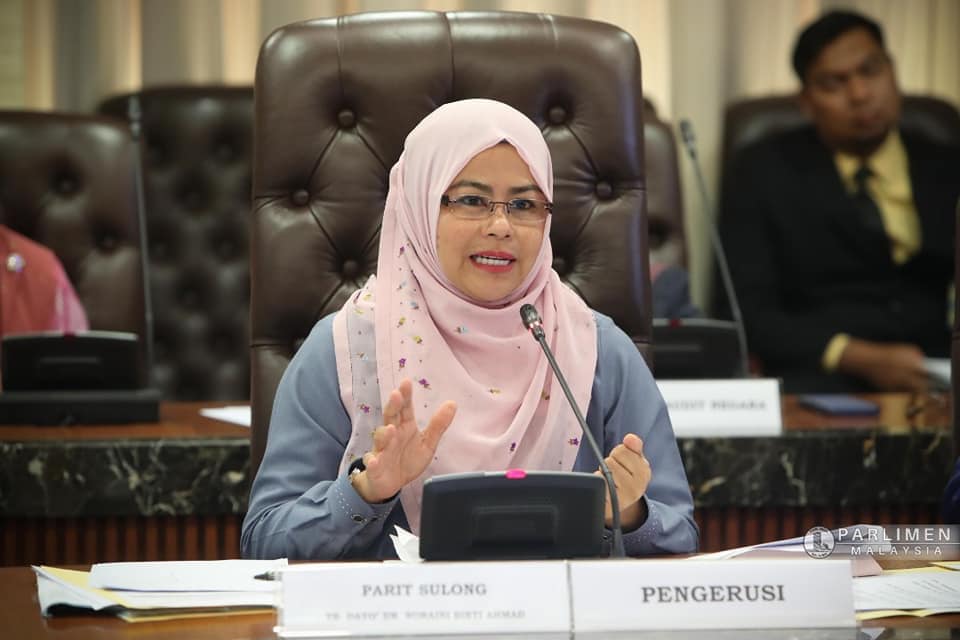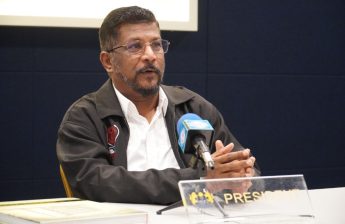KUALA LUMPUR, March 30 — Public university hospital health care workers and house officers doing coronavirus-related work are eligible for the special monthly Covid-19 allowance, officials said.
Higher Education Minister Noraini Ahmad said her ministry previously received approval for Covid-19 frontliners from public university hospitals to receive the special allowance when it was first introduced last February at RM400 monthly.
“After the new rate was announced, we had further requested for similar rate, i.e RM600, be extended to HPUA (Hospital Perubatan Universiti Awam) as well. We are awaiting response. Insya-Allah, it will receive similar approval,” Noraini told CodeBlue yesterday.
Prime Minister Muhyiddin Yassin announced last week that the government has increased the special coronavirus allowance from RM400 to RM600 monthly for frontline health care workers managing the outbreak. The RM600 monthly allowance will be in effect from April 1 until the end of the epidemic that has killed 34 Malaysians and infected nearly 2,500 people in Malaysia.
A Ministry of Health (MOH) circular dated March 16 on the RM400 monthly Covid-19 allowance had said the allowance applied to MOH staff — medical officers, specialists, non-doctor staff in the management and professional group, paramedics, and staff in the administration group. The circular did not list housemen and public university health care workers as eligible beneficiaries of the Covid-19 allowance.
The scope of coronavirus-related work covered by the allowance, which beneficiaries must claim for, includes making action plans to tackle the outbreak, detection and screening at medical facilities or Malaysia’s main entry points, contact tracing, infection control, home surveillance of people under quarantine, testing, and admission and treatment.
Higher Education Ministry director-general Prof Mohd Saleh Jaafar said the Covid-19 allowance has been extended to frontline health care workers at all eight public university hospitals managing the coronavirus outbreak — Universiti Malaya, International Islamic University Malaysia, Universiti Kebangsaan Malaysia, Universiti Putra Malaysia, Universiti Sains Malaysia, Universiti Teknologi MARA, Universiti Malaysia Sarawak, as well as Universiti Malaysia Sabah that will be roped in soon.
These universities do diagnostic tests to detect the coronavirus, while Universiti Malaya Medical Centre (UMMC) in Kuala Lumpur, Hospital Canselor Tuanku Muhriz UKM (HCTM) in Selangor, and Hospital Universiti Sains Malaysia (HUSM) in Kelantan are also coronavirus-admitting facilities.
“All eight HPUA already and will continue to be involved with KKM efforts. We are in constant communication with KKM administrators,” Saleh told CodeBlue, referring to MOH’s Malay acronym.
Deputy Health Minister I Dr Noor Azmi Ghazali said the Covid-19 allowance also applied to trainee doctors.
“This special allowance can be given to officers who are instructed to take part in the chain of management to manage and curb the Covid-19 outbreak, including housemen if they are instructed to get involved in the management of admission and treatment of patients, especially in the Emergency and Trauma Department,” Dr Noor Azmi told CodeBlue.
Although a March 13 MOH circular states that fresh housemen are not allowed to be placed at the infectious diseases ward or the screening counter for Covid-19 when they report for duty at training hospitals, some doctors say that house officers have been involved in coronavirus screening.
A 26-year-old houseman told CodeBlue that he does Covid-19 screening at a public hospital in Kuala Lumpur to prevent virus transmission in his ward, where he and his team of house officers measure patients and staff’s temperature and take detailed history. High-risk ones will be sent to second-level screening for swabs.
“We also crosscheck with our infectious disease department too, as patient may not have symptoms, but recent travel history, or family members might be Covid-positive. These information sometimes have to be squeezed out as they will not voluntarily say it. Symptoms is not the only reason we would send for swabs,” said the trainee doctor, who declined to be named.








